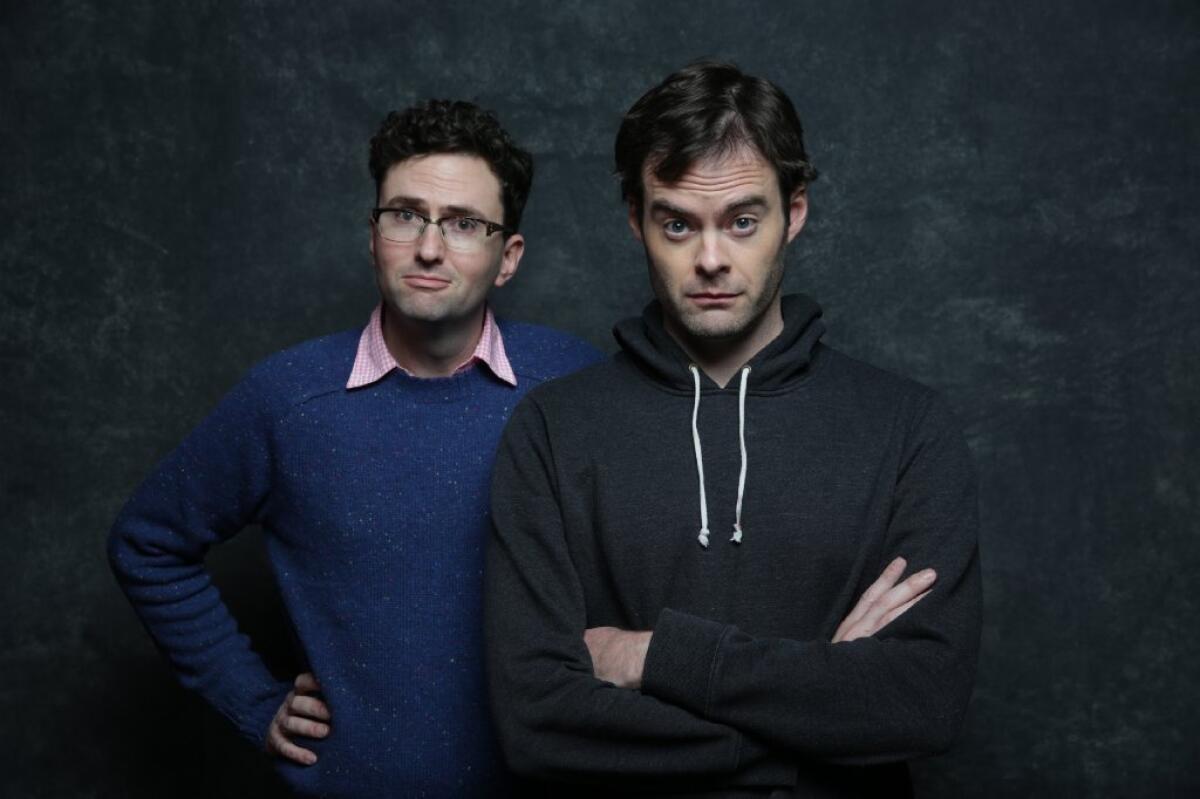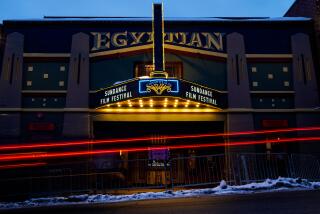Sundance 2014 winners: ‘Whiplash’ wins big

PARK CITY, Utah — “Whiplash,” Damien Chazelle’s debut feature about a fraught relationship between a teacher and student at a New York music school, was the big winner at the Sundance Film Festival on Saturday night, taking the top audience and grand jury awards in the U.S. dramatic competition.
Sony Pictures Classics acquired “Whiplash” — which stars J.K. Simmons as an abusive instructor and Miles Teller as his prize drummer pupil — at the festival and aims to release it this year. This is the second year in a row that a single film scored the top two U.S. dramatic prizes; last year, “Fruitvale Station” took those two honors.
On the U.S. documentary side, the grand jury gave its top award to Tracy Droz Tragos’ and Andrew Droz Palermo’s “Rich Hill,” about a family in small-town Missouri facing intense financial hardship,” while Michael Rossato-Bennett’s Alzheimer’s documentary “Alive Inside: A Story of Music & Memory” won the audience prize.
PHOTOS: Sundance Film Festival 2014 | Photo booth
Chazelle, 29, turned around his film from an award-winning short at the festival just last year. In accepting the prize Saturday, Chazelle said “Whiplash” was “not an easy movie to make, not an easy movie to convince people to make.”
“Alive Inside,” meanwhile, explores the effect of music on treating patients with dementia.
“I just made this film because it moved me, and I didn’t realize how big a topic it was,” Rossato-Bennett said in accepting the award.
The directing award in U.S. dramatic went to Cutter Hodierne, whose “Fishing Without Nets” was the latest drama about a Somali hijacking to come out of the film world. The prize was also notable because the film comes from Vice Media, the upstart Brooklyn, N.Y., company making forays into scripted feature films.
The world cinema dramatic grand jury prize went to Alejandro Fernandez Almendras’ “To Kill a Man.” The Chilean film explores a middle-class family standing up to bullies, both local and bureaucratic.
And the world cinema documentary grand jury prize went to Talal Derki’s “Return to Homs,” a story about an activist and a soccer star in the Syrian revolution. Accepting the prize, producer Orwa Nyrabia took a political tack, saying that the win “gives us some hope a president could be ousted and some president in another place could change his mind and do something finally.”
Although top awards mean a great deal of prestige and can land filmmakers high-profile gigs, they don’t always spell big returns at the box offiice. Despite strong reviews, “Fruitvale Station” generated just more than $16 million at the U.S. box office. The 2012 Sundance darling “Beasts of the Southern Wild” landed an Academy Award best picture nomination but managed only about $13 million at the U.S. box office.
Elsewhere in U.S. narrative categories, Craig Johnson and Mark Heyman took the prestigious Waldo Salt screenwriting prize for “The Skeleton Twins,” a story about a pair of reuniting siblings. The film, which stars Kristen Wiig and Bill Hader, was very warmly received at the festival. It has been acquired by Lionsgate/Roadside and will be released in late summer or early fall, according to its filmmaker.
Hodierne took to the stage with some of his actors and noted that “we went to the opposite side of the world” casting actors from Kenya in key parts. “If they could speak English, we’d really be talking right now,” he said as they stood behind him. One of the performers then took the microphone and said, “English small.... I love you, everybody. I love you, everybody.”
In other prizes, a special U.S. documentary special jury award for “intuitive filmmaking” went to Jesse Moss’ “The Overnighters,” a look at a small-town ministry in North Dakota. A special jury prize also went to Edet Belzberg’s look at humanitarianism and diplomacy, “Watchers of the Sky,” for its use of animation; the film also took a documentary editing prize.
The directing prize in the U.S. documentary competition went to Ben Cotner and Ryan White for “The Case Against 8.” Shot over five years, the film explores from both sides the legal battle over California’s same-sex marriage legislation.
The U.S. dramatic jury gave a special award for breakthrough talent to Justin Simien’s “Dear White People,” his sendup of race relations on a college campus.
The audience prize in the fest’s Next section went to “Imperial Dreams,” directed by Malik Vitthal. Filmed in the Watts projects, the film tells the story of a young man trying to get his life back on track after returning home from a stint in jail.
The world dramatic jury gave a special prize to “God Help the Girl,” Belle and Sebastian frontman Stuart Murdoch’s directorial debut about a trio of young Glaswegians who come together to form a band.
“20,000 Days on Earth,” which transforms the convention of the behind-the-scenes music documentary, nabbed two prizes in the world documentary competition. The film, which portrays a surreal day in the life of musician Nick Cave, saw directors Jane Pollard and Iain Forsyth win the directing prize, while Jonathan Amos won the editing prize.
World cinema audience award for documentary went to Nadav Schirman’s “The Green Prince,” about a Palestinian informant and his relationship with his Israeli handlers. “Difret,” a story of marriage abduction in Ethiopia, directed by Zeresenay Berhane Mehari, won the world cinema audience award in the dramatic category.
This year’s Sundance Film Festival, the confab’s 30th annual edition, will wrap up Sunday.
ALSO:
PHOTOS: Sundance Film Festival 2014 | The scene
PHOTOS: Sundance Film Festival 2014 | Photo booth
LIST OF SUNDANCE SELECTIONS: U.S. and world cinema dramatic competition
More to Read
Only good movies
Get the Indie Focus newsletter, Mark Olsen's weekly guide to the world of cinema.
You may occasionally receive promotional content from the Los Angeles Times.












